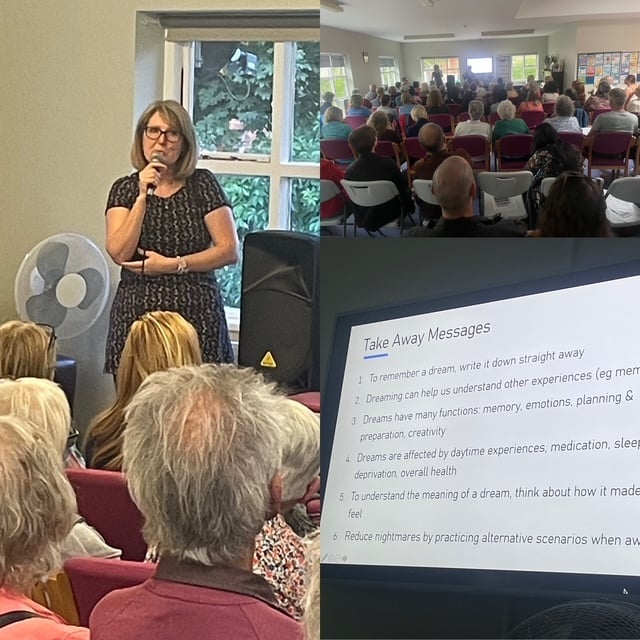The psychology of dreams
Published on 28 August 2025 02:15 PM

Neuroscientist Professor Catherine Loveday recently spoke about the science of dreams and why dreaming is good for us... here are a few takeaways from her fascinating talk
:
* Nearly all of us dream - even if we don’t remember them. In fact, most of us forget our dreams within 10 minutes of waking up!
* Our prefrontal cortex (the control centre of our brain, responsible for everything from decision making to regulating our behaviour) takes a back seat, which is why dreams bend the rules of time and reality. Meanwhile, areas linked to vision, thinking about movement, memory and emotion light up, stitching together fragments of our lives in surprising ways.
* Dreams boost creativity and problem solving: in studies people woken from REM sleep solve puzzles better than at any other time of day. People who are given problems before good REM sleep are more like to wake up with the answer.
* Dreams help us process emotions: dreaming allows us to re-play experiences, project into the future, and work through challenges. In studies people with depression who dream more -especially when reflecting on issues before bed - often improve more quickly.
* Daydreaming counts too. Letting your mind wander is healthy! It helps reactivate memory circuits, strengthen learning, and spark creativity. Our minds go on a little journey when nothing is going on, flipping between things that have happened and things that might happen.
* Want to make your dream work for you? Write down your dreams straight away, think about how it made you feel and what it might mean. A kind of overnight therapy, writing down dreams and spotting patterns can help us make better sense of our emotional lives.
Catherine's next talk will be at 11.15am-12.15pm on Sunday 5 October at Middlesex University as part of our Silver Sunday celebration (11am-3pm).
Details and registering on Eventbrite here.
